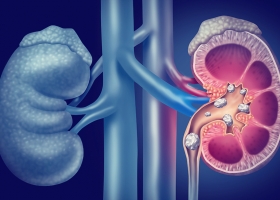Primary tabs
Culinary genomics may be the future of food consumption as science reveals the connections of food-gene relationships, chronic disease and ageing.
Dysmenorrhoea is the most common gynaecological condition in women, with prevalence ranging up to 91% in women of reproductive age. Complementary treatments such as ginger and zinc should be considered as efficacious as part of any treatment protocol for dysmenorrhoea.
What is the research telling us about the most effective herbal medicines for neuroprotection?
Often, kidney stone sufferers are told what to avoid.. but are they being screened for simple nutrient deficiencies - and which are the most important?
Poor sleep is a common complaint for both children and their parents. Fatigue in children can cause a number of problems in waking life, including decreased concentration, behavioural issues, school absenteeism, lower immune resistance and less emotional resilience.[1]
Magnesium is famed for its widespread health benefits, with one particular form, magnesium orotate, thoroughly researched as an unequivocal therapeutic for cardiovascular health.[1] Magnesium orotate’s application in this area may reduce the risk of various conditions ranging from mitral valve prolapse (MVP) to tachycardia and hypertension, according to a recent meta-analysis.
Flavonoids such as quercetin and essential nutrients including vitamin A are often overlooked when supporting children’s immune health.









